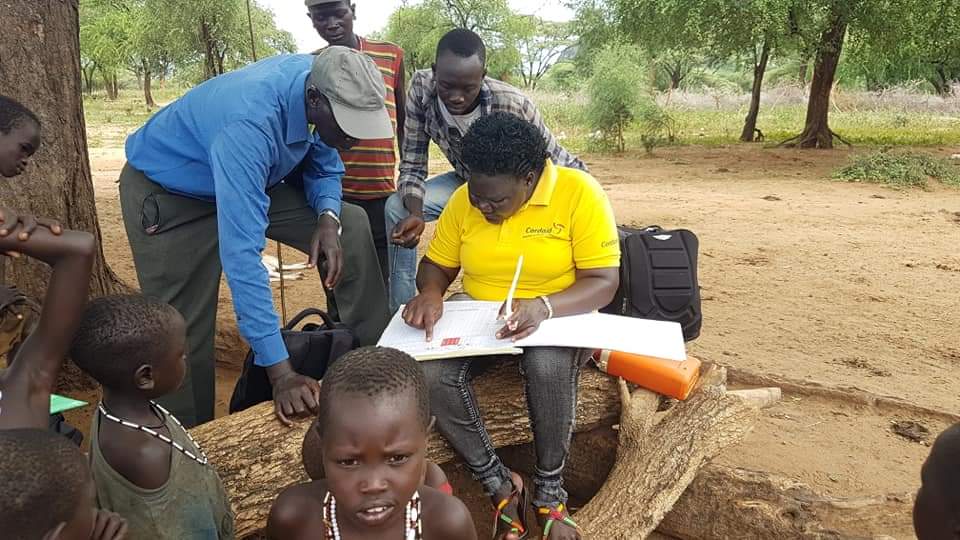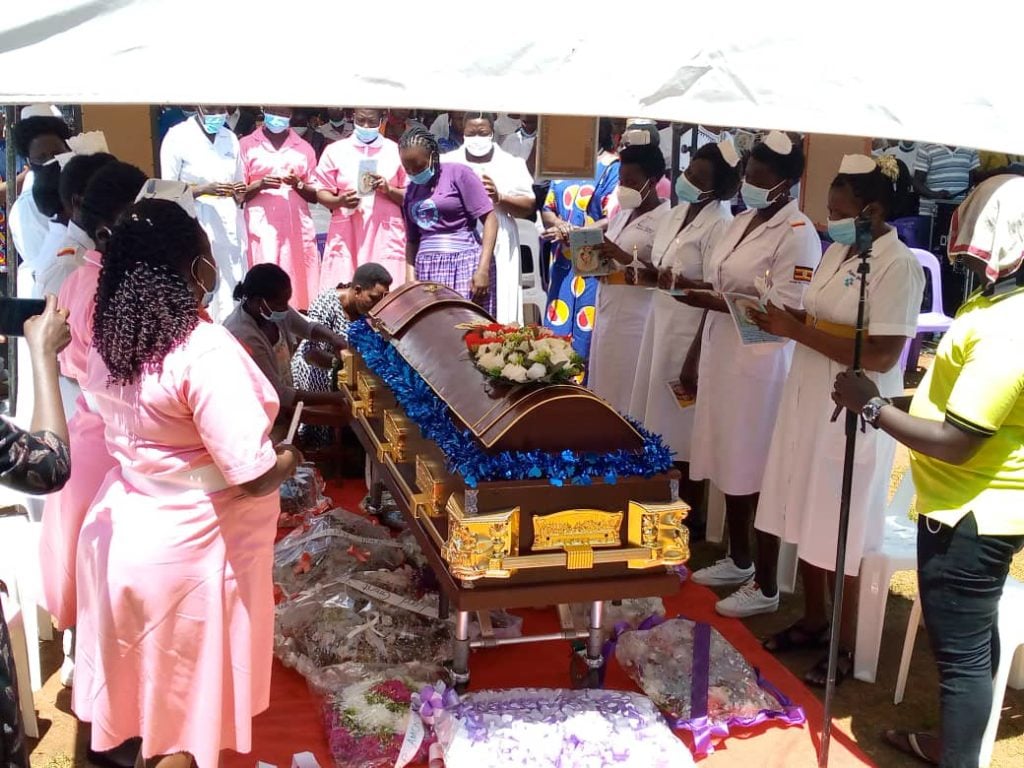Clara Amono was Cordaid’s reproductive health specialist in South Sudan. Her life’s work was combating infant and maternal mortality and morbidity. On May 12th, while on active humanitarian duty, she was fatally shot.

Clara Amono was traveling to support a medical facility, when the convoy she was part of, operated by Cordaid and Save the Children International, came under gunfire from unidentified attackers in Budi County, Eastern Equatorial State. She did not survive the incident. A driver of the vehicle, clearly marked humanitarian, was wounded in the attack.
Working tirelessly to provide mother and child care
Clara, 40 years old and mother of one child, joined Cordaid in 2017. Shoulder to shoulder with many colleagues and health workers in South Sudan, she worked tirelessly to improve reproductive health, neonatal and postnatal care.
“You feared no road ambushes. You had survived the insurgency of Joseph Kony in Northern Uganda. Clara, you never felt hunger or thirst. It was all well with you.”
Clara’s death shocked and saddened the entire Cordaid family. “We will greatly miss Clara. It is a heartbreaking loss, felt all the more by her family. Our thoughts and sympathies are with them,” said Cordaid CEO Kees Zevenbergen.
The challenges of humanitarian workers
Kinga Komorowska, Cordaid Country Director in South Sudan: “Clara’s sudden demise shocked all of us. It is moments like these that remind us how unpredictable and challenging the life of humanitarian workers can be in fragile and conflict-affected settings. We are in mourning.”
“As Clara would have wanted, Cordaid will continue to fight infant and maternal mortality and morbidity and serve communities in dire need,” Komorowska adds.
Clara was Ugandan, an Acholi from Kitgum who was keen on her Christian faith. With her passing away, Cordaid loses a sister, a friend, and an expert. She was humble and hardworking and will be remembered for the great work she did in Budi, Melut, and Kapoeta Counties. And in other parts of South Sudan where she had worked before joining Cordaid.
Clara worked hard to obtain a Bachelor of Science in Public Health in 2019, with the sole aim to increase her skills and improve the quality of her work.
Climbing mountains on foot to reach health facilities
She skilfully took on a myriad of missions in several Counties. Her antenatal, neonatal, and postnatal care included child survival initiatives and on-the-job training and mentorship of health staff and community-based health workers. She also made sure that family planning, drugs, and essential reproductive health commodities were available at all times in the Cordaid supported facilities.

Clara would literally walk and climb mountains in Budi on foot to reach health facilities and provide care to mothers and infants. To serve them better she learned the local Didinga language. ‘Calara’ is how the mothers she assisted nicknamed her. When they met her, they shouted her name in joy. As a token of gratitude, parents named their kids after Clara in the communities she served.
“I vividly remember how you would bathe the mothers after giving birth and how you would wash their clothes.”
Ensuring the safety of mother and child during and after delivery was probably closest to her heart. “You are one of the people I respected so much in Kapoeta Mission Hospital. For your professionalism. For your gentleness and love for mothers and babies. I vividly remember how you would bathe the mothers after giving birth and how you would wash their clothes,” says former colleague Pita Jane.
Never giving up
Clara was one to never give up. Health worker Komakech Chaoudy remembers how she saved the life of a mother after delivery, in 2014. “The mother developed heavy bleeding and was in a coma. Clara shouted for help. The vital signs of the mother were almost undetectable. We started resuscitating, Clara led the team. It reached a point when everyone was almost giving up because the vitals were not detectable. Clara continued and encouraged the team not to give up. She said ‘God will help us’. The mother slowly picked up and the bleeding slowly reduced as Clara was continuing with bimanual uterine compression. The bleeding stopped. Clara monitored the mother until discharge.”

Pontius Bayo, Cordaid health coordinator and Clara’s colleague in South Sudan also highlights Clara’s dedication: “You decided to climb the hills in Budi County carrying the vaccines on your back. You checked on the pregnant mothers who could not walk down the hills. Long distances you traveled to support the younger health workers in some of the remotest areas. You feared no road ambushes. You had survived the insurgency of Joseph Kony in Northern Uganda. Clara, you never felt hunger or thirst. It was all well with you. The teams relied a lot on your zeal and you told them it was well. But the coward has taken you away from us so soon.”
“We must be able to move safely and without fear”
The wider humanitarian community was quick to extend deep condolences and sharply condemned the attack. UN OCHA Humanitarian Coordinator in South Sudan, Alain Noudéhou, called for authorities and communities to ensure that humanitarian personnel can move safely along roads. “I am shocked by this violent act,” he said. “The roads are a vital connection between humanitarian organisations and communities in need, and we must be able to move safely across the country without fear,” he added.
Aid worker security
Clara is the first aid worker killed in South Sudan in 2021. In 2020, nine aid workers were killed. In the past years, South Sudan had high – if not the highest – number of attacks on aid workers, as shown in the Aid Worker Security Reports.
As reproductive health specialist Rose Agulinda Omondi said: “Clara, dance with the angels. And may God Almighty protect us as we continue to serve in this country.”

Clara was buried on May 17th in her home country Uganda. May 21st there will be a memorial service in Juba, South Sudan. May she rest in peace.